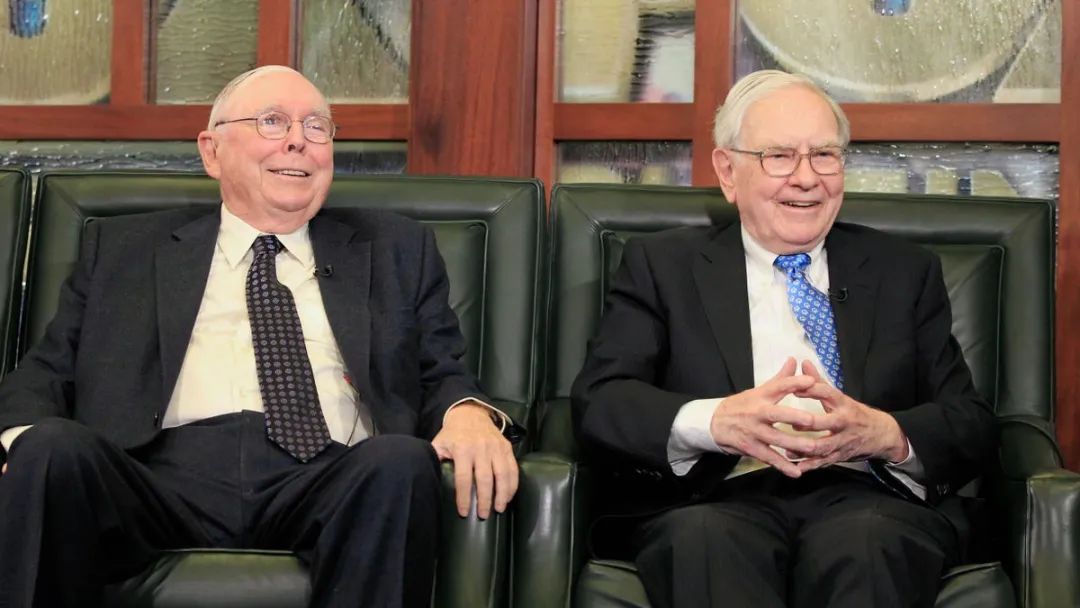每年5月份,初夏,在美国小镇奥马哈,沃伦巴菲特和查理芒格都会举行长达6小时的伯克希尔哈撒韦公司年会。年会上有个传统环节,由股东现场提问,巴菲特和芒格现场回答。这个环节占用了年会绝大部分时间,里面很多问题都非常有趣,包含了看待事物的方式、人生哲理、投资方法。
目前能搜罗到的伯克希尔年会问答实录,从1994到2023合共三十年,当时读的是中文翻译的版本。读完之后想再读,但我想既然再读为啥不直接读英文原版呢,于是找到了英文原版重读,同时这次做了一些精彩的摘录。当然了,其他部分也很精彩,只是我对这些摘录更有共鸣,你去读这份年会问答实录感到有的共鸣的部分肯定是不一样的,所以推荐大家去读全文。这份问答录适合想在生活中和工作中获得长久的独立、充实、理性、愉悦的人。
人生中能找到一个品行卓越的老师,并且他还可以以某种方式深入地影响你,是一辈子最幸运的事情。沃伦巴菲特找到了本格雷厄姆,查理芒格找到了本杰明富兰克林。
以下以摘录的形式,把某个问题的原文原封不动摘录下来,然后某些段落后面加上我自己的感想。
————
"Why we have no short-term opinion on stocks"
WARREN BUFFETT: Zone 2.
AUDIENCE MEMBER: Diane West (PH) from Corona Del Mar, California.
I know, Mr. Buffett, that you said that you don’t read what other people say about the market or the economy, but do either you or Charlie have an opinion about how you think things are going to go? Are you bullish or bearish?
WARREN BUFFETT: You may have trouble believing this, but Charlie and I never have an opinion about the market because it wouldn’t be any good and it might interfere with the opinions we have that are good. (Laughter)
If we’re right about a business, if we think a business is attractive, it would be very foolish for us to not take action on that because we thought something about what the market was going to do, or anything of that sort.
Because we just don’t know. And to give up something that you do know and that is profitable for something that you don’t know and won’t know because of that, it just doesn’t make any sense to us, and it doesn’t really make any difference to us.
我们经常会不经意地讨论一些“大事”,但这些大事有多少是真的可以为你我所预测的呢?几乎没有。能够影响宏观事物走向的因素实在是太多了,往往个人的言论都只是管中窥豹。偶然猜对了也不必骄傲和自信,毕竟坏了的钟一天还有两个时刻是对的。如果误认为在统计学上“猜对”的结果是自己的能力,再去做下一次的决策则下次的结果可想而知,因为再次“猜对”的概率极低。所以,关键是搞清楚什么是可知的,什么是不可知的。把握住那些可知的,放弃不可知的。不要做反了,为了不可知的,而去放弃可知的。这就是巴菲特说的,他从来不去预测宏观。他是真的完全不在乎宏观,只在乎这笔投资是否足够便宜有多少价值。
I mean, I bought my first stock in, probably, April of 1942 when I was 11. And since then, I mean, actually World War II didn’t look so good at that time. I mean, the prospects, they really didn’t. I mean, you know, we were not doing well in the Pacific. I’m not sure I calculated that into my purchase of my three shares. (Laughter)
But I mean, just think of all the things that have happened since then, you know? Atomic weapons and major wars, presidents resigning, and all kinds of things, massive inflation at certain times.
To give up what you’re doing well because of guesses about what’s going to happen in some macro way just doesn’t make any sense to us. The best thing that can happen from Berkshire’s standpoint — we don’t wish this on anybody — but is that over time is to have markets that go down a tremendous amount.
I mean, we are going to be buyers of things over time. And if you’re going to be buyers of groceries over time, you like grocery prices to go down. If you’re going to be buying cars over time, you like car prices to go down.
We buy businesses. We buy pieces of businesses: stocks. And we’re going to be much better off if we can buy those things at an attractive price than if we can’t.
So we don’t have any fear at all. I mean, what we fear is an irrational bull market that’s sustained for some long period of time.
You, as shareholders of Berkshire, unless you own your shares on borrowed money or are going to sell them in a very short period of time, are better off if stocks get cheaper, because it means that we can be doing more intelligent things on your behalf than would be the case otherwise.
如果买公司的钱不是长期的钱,就很难让时间站在自己这边,让时间成为朋友是非常非常重要的事情。如果某件必然会发生的事情,虽然不知道什么时候会发生而某一年内发生的概率是10%,那么随着时间的推移这件事情在10年之内发生的概率会达到65%,20年内发生的概率会接近90%。想象一下,如果没有时间这个朋友,成功的概率是10%,而有了时间这个朋友成功的概率就可以上升到60%甚至90%。从偶然到必然,前提是你拥有时间。
But we have no idea what — and we wouldn’t care what anybody thought about it. I mean, most of all ourselves. (Laughter)
Charlie, do you have anything?
CHARLIE MUNGER: No. I think the — if you’re agnostic about those macro factors and therefore devote all your time to thinking about the individual businesses and the individual opportunities, it’s just, it’s a way more efficient way to behave, at least with our particular talents and lacks thereof.
WARREN BUFFETT: If you’re right about the businesses, you’ll end up doing fine.
We don’t know, and we don’t think about when something will happen. We think about what will happen. It’s fairly, it’s not so difficult to figure out what will happen. It’s impossible, in our view, to figure out when it will happen. So we focus on what will happen.
这里所谓的会发生的事情,就是看明白一门生意它二十年后的状况。很多生意并不是靠努力研究就能看得清的,这跟生意的本质有关,也跟自己的经历和知识结构有关。很多生意你一看就大概知道它是怎么一回事儿,另外的更多的生意即使花10000个小时也研究不出来搞不清。但即使是看得懂的生意知道未来会发生什么,也不知道啥时候会发生。耐心等待就行了,时间是朋友。
This company in 1890 or thereabouts, the whole company sold for $2,000. It’s got a market value now of about 50-odd-billion, you know?
Somebody could’ve said to the fellow who was buying this in 1890, you know, “You’re going to have a couple of great World Wars, and you know, you’ll have the panic of 1907, all these things will happen. And wouldn’t it be a better idea to wait?” (Laughter)
We can’t afford that mistake, basically. Yeah.

精彩评论